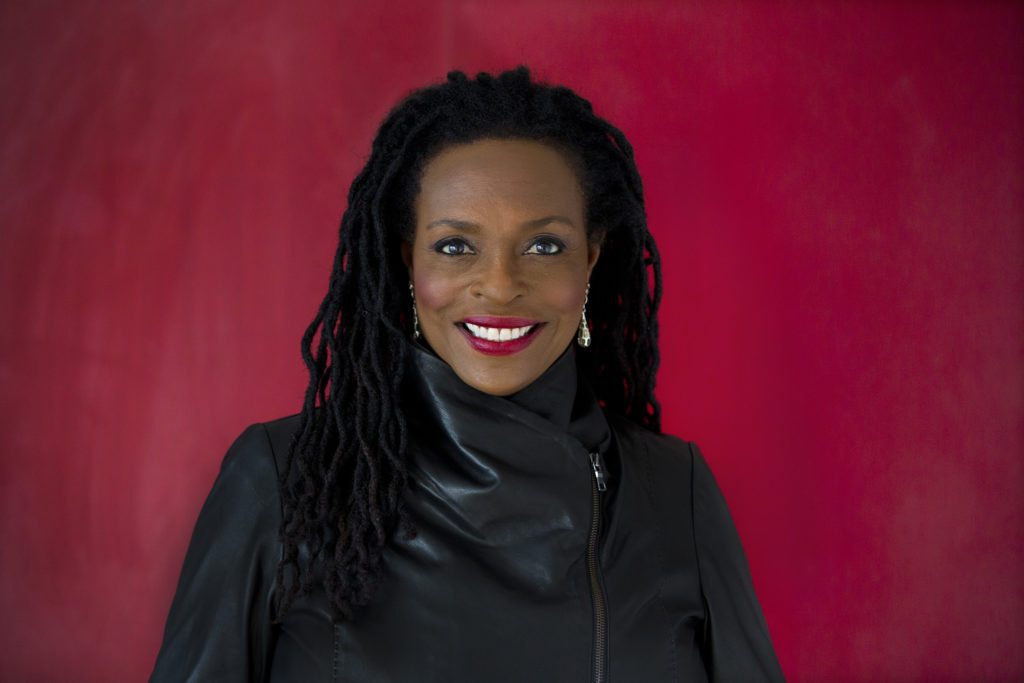Rev. Jacqui Lewis, Ph.D. Uses Theology as a Healing Force

When Reverend Doctor Jacqui Lewis was around 9 years old, she and her sister hid under their beds while guns were being shot off in their neighborhood following the assassination of Dr. Martin Luther King, Jr. That night, she realized that she wanted to work for racial equality in the United States, and as she grew up, she discovered that she wanted to do that work through ministry.
Fast forward to 2020, and Rev. Dr. Jacqui Lewis serves as the Senior Minister for Public Theology and Transformation at Middle Collegiate Church in New York City. Since she started working at the church in 2004, Lewis has helped Middle Church become even more progressive and accepting than it was before by focusing on a strong commitment to LGBTQ justice and to being a multiracial church.
Liturgy and social justice
“We wanted to push ourselves to be anti-racist, not only as a congregation, but in our activity in the world both as individuals and as a community. And then to look at all the justice issues that relate to race — gun violence, poverty, voting rights, incarceration rates. And that really grew our congregation. Now we’re like a 1,300 people church. I think people are finding us who know that congregational life has to be about more than your personal relationship with God; it’s about making the world reflect God’s reign over heaven,” said Lewis.
Middle Church incorporates social justice into their liturgy by celebrating the diversity of cultures in worship.
“Not only is the liturgy about the God story, it’s also about the world story. One of the texts I preach is the Bible, and the other text I preach is the world. When you get to Middle Church, you’re getting God, you’re getting people, you’re getting love,” said Lewis. “If we are people of faith, our faiths demand our participation in what the Jewish people call tikkun olam: in healing the world. Our faith demands it. It is part of being created in the image of God.”
Want to make change in your own church?
Middle Church hopes to be a model for other churches who want to be more inclusive. Lewis suggested that there are two key elements to paving the way for change: making a commitment and being open to learning.
“Make a commitment, and acknowledge [that] we don’t know all things. Decide, ‘I’m gonna participate in the healing of the world, and I’m gonna do it with my faith hat on.’ Then, you start being a student. There are so many great resources out there that you can learn from,” said Lewis.
Middle Church is also involved in other projects that use theology as a healing force:
- Revolutionary Love: Toward a More Perfect Union Conference — Taking place in Washington D.C. this year, this is Middle Church’s 14th annual conference on racial reconciliation.
- Racial Healing Task Force — This task force teaches young adults how to manage race and culture.
- Online sermons and resources — Middle Church streams all of their Sunday services so that people everywhere can listen, and they also have a wide array of resources for individuals who are interested in learning more about things like racial justice, LGBTQIA+ justice, and more.
“Think about Middle Church as an example of what happens when you put your foot down and say, ‘Not on my watch.’ People find you, people want to be in these kinds of spaces. And in the words of Dr. King, ‘Injustice everywhere is a threat to justice everywhere.’ So if we just put our minds to it and let it catch our imagination, I think we find allies and we find resources and we can do this thing together,” said Lewis.
Middle Collegiate Church and The Collegiate Church of New York is co-affiliated with the United Church of Christ and the Reformed Church in America. To learn more about Middle Church, check out their Facebook.
